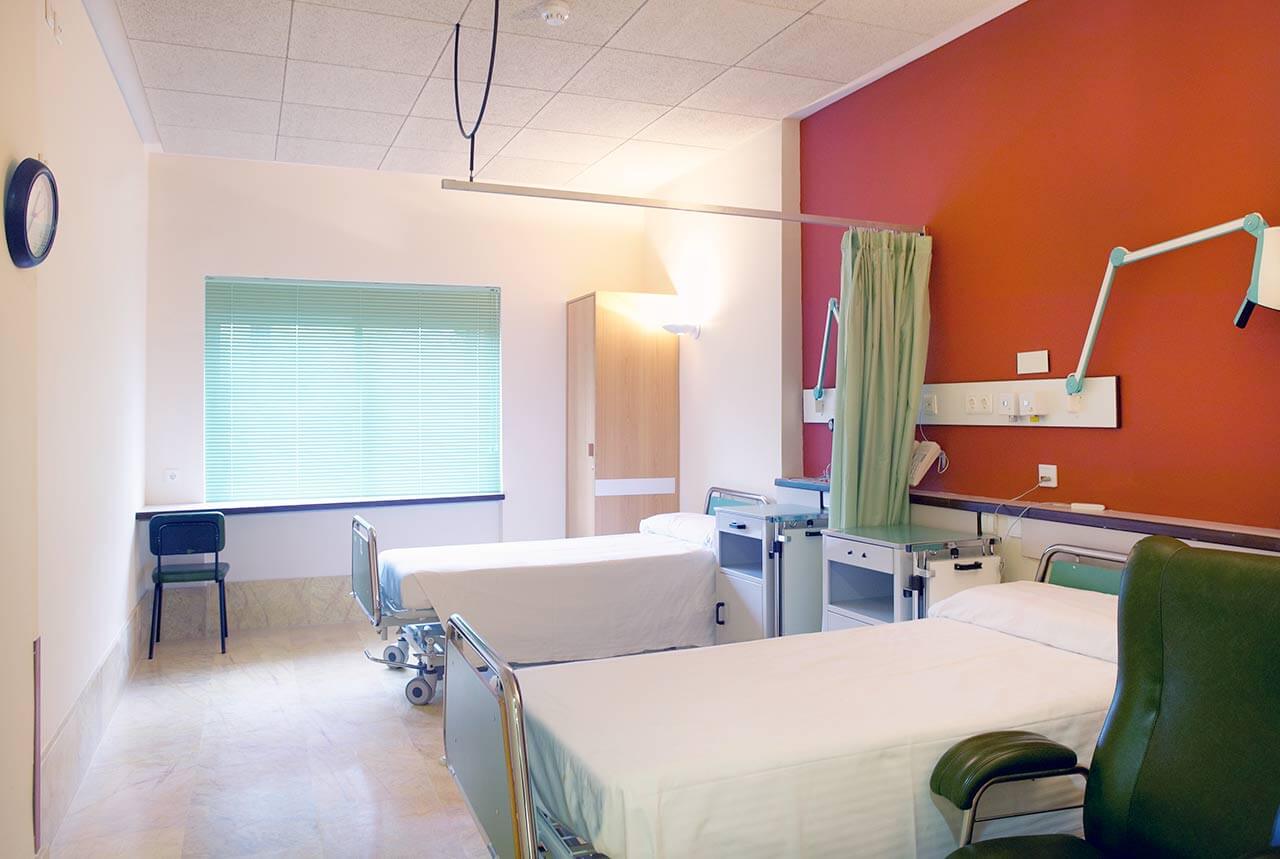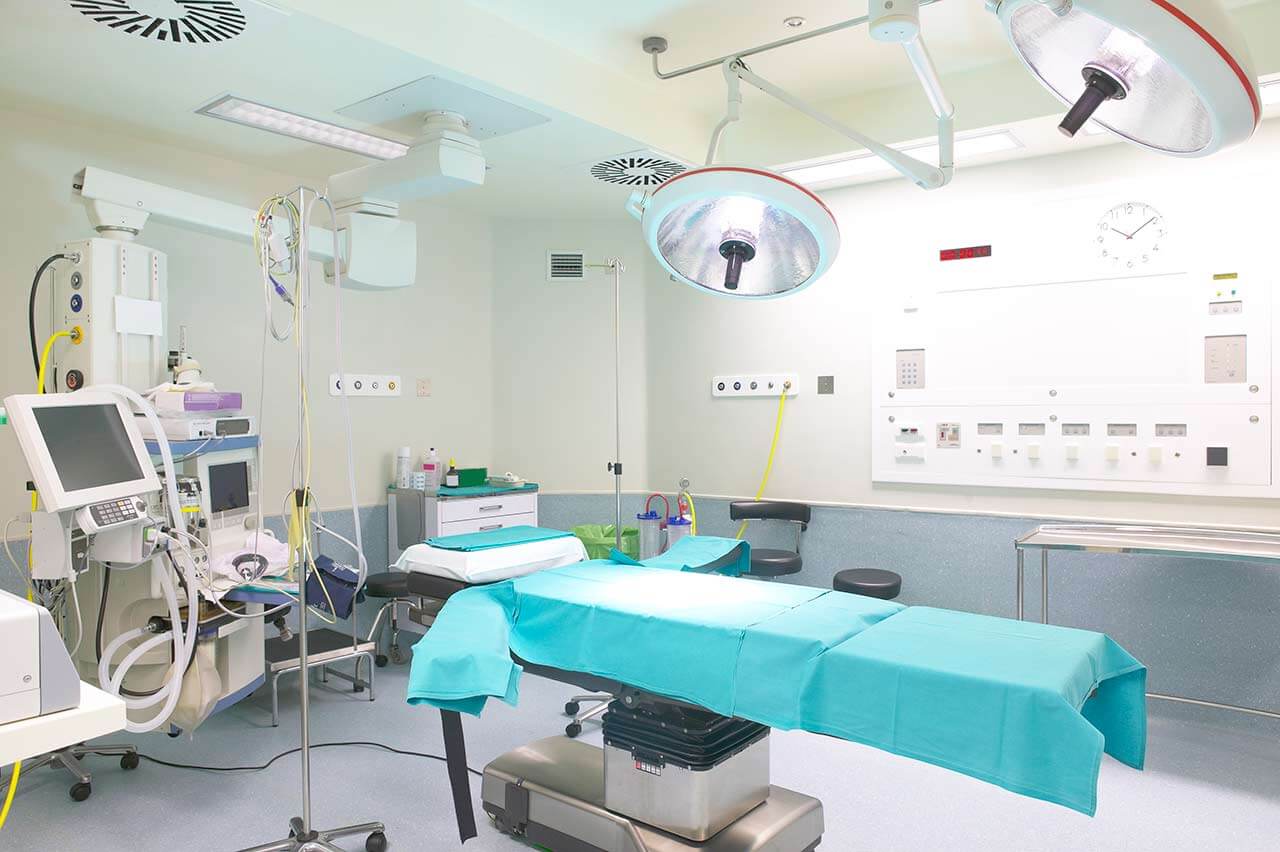
About the Department of Interventional Radiology, Neuroradiology and Nuclear Medicine at Hospital Cologne-Merheim
The Department of Interventional Radiology, Neuroradiology and Nuclear Medicine at the Hospital Cologne-Merheim offers the full range of diagnostic and therapeutic services in the fields of its competence. The specialists at the medical facility perform image-guided examinations every day, including diagnostics with radioisotopes. In many cases, the results of these tests provide doctors with comprehensive information about the condition of the affected organs and allow them to carry out effective treatment. The department's doctors also successfully perform image-guided minimally invasive interventional procedures for stroke, brain aneurysms, tumors, vascular stenosis, vascular obstructions, abscesses, angiomas, and other diseases. The source of the department's pride is its state-of-the-art equipment, such as a high-performance SOMATOM Definition Flash computer tomography scanner, several 1.5 Tesla magnetic resonance imaging devices, and a dual-plane angiography system. Patients' clinical data is stored in the picture archiving and communication system (PACS), thanks to which doctors can quickly process and transfer the diagnostic results to different departments at the hospital. Almost all diagnostic tests are performed on an outpatient basis. However, a short-term hospital stay is often required for interventional therapeutic procedures. The department's specialists work for the benefit of patients, providing them with top-class medical care in accordance with international standards. The Head Physician of the department is Prof. Dr. med. Axel Gossmann.
One of the department's key areas of clinical practice is interventional radiology. The medical facility performs image-guided invasive examinations and therapeutic procedures. The most popular diagnostic procedure is biopsy, during which biological material is sampled under ultrasound or CT guidance for further cytological and histological examinations. As for interventional treatment, the department's doctors have vast experience in chemoembolization for treating malignant tumors, balloon dilatation with stent implantation for eliminating vascular stenosis and obstructions, radiofrequency ablation for destroying metastases, image-guided interventional procedures for abscess drainage, and other manipulations. Local anesthesia is usually used during therapeutic procedures, which significantly reduces health risks for the patient. In addition, an approach is provided through an arterial puncture (most often through a femoral puncture), eliminating the need for skin incisions and the risk of severe bleeding. Thus, interventional procedures ensure effective treatment results and are characterized by high safety.
The department's team of neuroradiologists performs image-guided examinations of the brain and spinal cord, as well as excels in CT- and MRI-guided endovascular treatment of diseases of the nervous system. The therapeutic options at the medical facility include aspiration thrombectomy for stroke, coiling for brain aneurysms, and embolization for angiomas and malignant brain and spinal cord tumors. When performing neuroradiological interventions, the specialist punctures the inguinal artery, inserts a miniature catheter there, and guides it to the affected artery in the brain, after which the necessary manipulations are performed. The doctor controls the process with the help of real-time images displayed on a screen.
Another area of the department's competence is nuclear medicine. Special attention is paid to radioisotope examinations such as scintigraphy of the myocardium, kidneys, bones, lungs, brain, thyroid gland, and other organs. Radiopharmaceuticals with radioactive markers are administered during the examinations, which accumulate in tissues or organs and emit specific radiation. This radiation is detected by external gamma cameras, resulting in the formation of the image. Scintigraphy is a painless and absolutely safe diagnostic method that, in many cases, allows doctors to obtain unique clinical data.
The department's range of medical services includes:
- Interventional radiology
- Image-guided interventional therapeutic procedures
- Balloon dilatation followed by stent implantation for vascular stenosis and obstruction
- Chemoembolization for malignant tumors
- Radiofrequency ablation for metastasis destruction
- Puncture for drainage of abscesses and other pathologic fluid accumulations
- Image-guided interventional therapeutic procedures
- Interventional neuroradiology
- Image-guided interventional therapeutic procedures
- Lysis therapy and aspiration thrombectomy for stroke
- Coiling for brain aneurysms
- Embolization for angiomas
- Embolization for brain and spinal tumors
- Image-guided interventional therapeutic procedures
- Nuclear medicine
- Radioisotope diagnostics
- Myocardial scintigraphy
- Skeletal scintigraphy
- Bone marrow scintigraphy
- Kidney scintigraphy
- Pulmonary perfusion and ventilation scintigraphy
- Brain scintigraphy
- Thyroid scintigraphy
- Parathyroid scintigraphy
- Adrenal scintigraphy
- Radioisotope diagnostics
- Other medical services
Curriculum vitae
Since 2008, Prof. Dr. med. Axel Gossmann has been the Head Physician of the Department of Interventional Radiology, Neuroradiology and Nuclear Medicine at the Hospital Cologne-Merheim. Since May 2013, he has held the position of Medical Director at the Hospital Cologne-Merheim. In September 2014, the specialist became the Head Physician of the Department of Diagnostic and Interventional Radiology at the University of Witten/Herdecke. Since April 2022, Prof. Axel Gossmann has also been Medical Director of the Cologne Hospital Network (Kliniken der Stadt Köln).
Photo of the doctor: (c) Kliniken der Stadt Köln gGmbH




